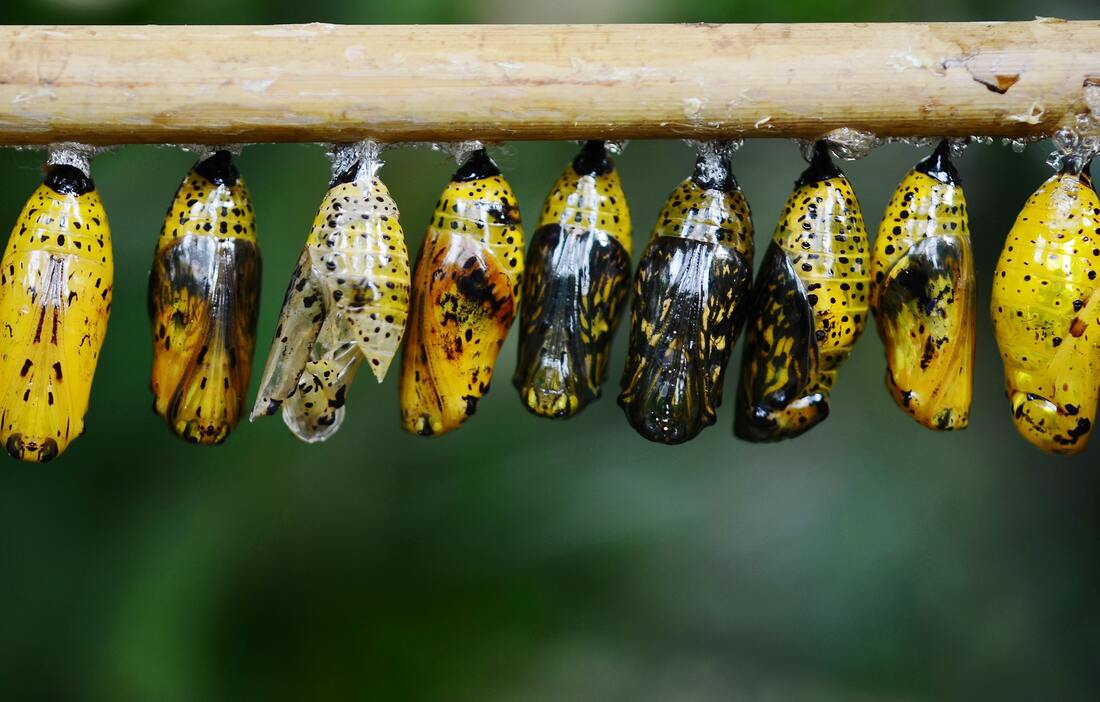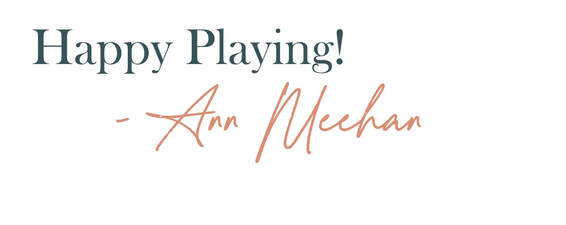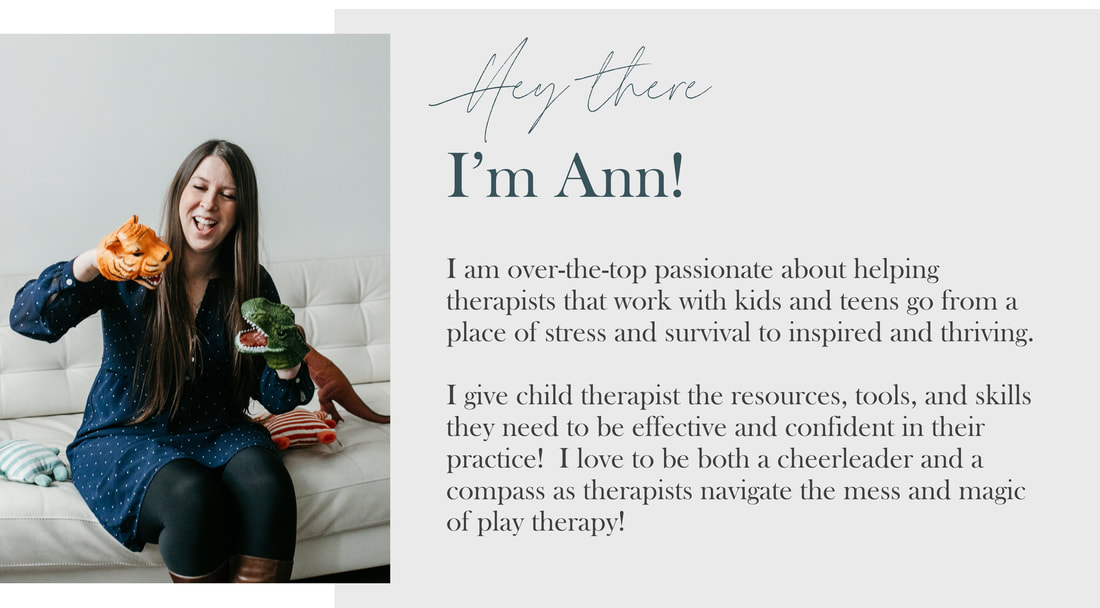|
Want to know a parenting secret?
Parenting is hard. Growing up is hard. You can’t escape the struggle.
Whewww… so now that we got that out of the way you (and your clients) can radically accept that the parenting process isn’t easy - no matter the child. Yup... the kids that present with mental health concerns in your office AND the children who don't will all struggle.
I remember when I first became a mom asking a wiser and more seasoned mom (well… a little bit more like pleading) “it gets better doesn’t it”? And her answer was one of the most real and freeing things. No. She let me know that it didn’t get easier, but the “hard stuff” was different. The “hard” at the infant stage is much different than the “hard” as and elementary student. And THAT “hard” is definitely different than teenage hard. Each age has a “hard”. Try as you might, you can’t escape it. So where does this leave us as we are supporting parents and children through the hard complications of just life as well as mental health difficulties and challenges? Well first off just because parents and kids are moving through a difficult issue it doesn't necessarily mean anyone is failing, messing up, or that it's not "normal". I wanted to offer one perspective on this when we think about the concept of “who holds the hard?”. In therapy (and life) you get a mix of parenting styles leading to many different ways of working through hard things. AND as a disclaimer when I am talking about things that are hard or struggles we are talking about age appropriate tasks and problems - not the grown up stuff. I often share this story with parents to illustrate the importance of the struggle, which is a version of this story from Frank Dupree. One day as a man was walking across town he came across a butterfly cocoon. Having nowhere particular to be that morning the man sat down on a bench to watch the butterfly inside of the cocoon. Over the course of a couple of hours we watched as the butterfly struggled and struggled to break free from the confinement of the cocoon. It created a small hole but it’s body was still too big to fit through. And so it went on, struggling and tired. As the butterfly became still the man though “why should I let this butterfly struggle when I can so easily solve its problems?”. The man knew that he could free the butterfly from the cocoon in a matter of minutes, a job the butterfly had been unable to accomplish all morning. He didn’t want the butterfly to struggle anymore when he was perfectly capable of helping. He wanted the butterfly to be able to emerge and be able to fly! The man knelt down and used his fingers to tear apart the cocoon and free the butterfly. He was so excited for the butterfly’s journey to be over and for the butterfly to finally take flight. To his dismay what emerged from the cocoon was not a beautiful butterfly. The butterfly was small and weak with its body full of fluid and its wings crumpled and shriveled. It would never take flight and would be confined in its short life to the ground. What the man didn’t realize was that the butterfly needed the struggle to develop. He did not understand that the struggle of the butterfly against the cocoon and through the hole was was allowed the fluid from its body to be pushed into its wings giving them the power and strength to fly. It was the struggle that made the butterfly strong, resilient, and capable. So what can we learn from this story? Well, a lot. The first thing I use this story is to demonstrate that parents (although good intentioned) cannot take the struggle away from their children. It is the struggle that makes them strong. If we take away all of a child’s pain and difficulty we aren’t actually doing them any favors, we are stealing their struggle, and all the POSITIVE outcomes that come with the struggle. It is in the struggle with the small things that they develop wonderful and excellent skills for distress tolerance and problem solving that they can bring into the BIG things later in life. If they don’t have any practice when the steaks are low they will never develop the skills. The next thing we can take away is that when adults and grown ups step in to solve children’s problems we are removing opportunities for resilience and self esteem. Think about it this way - if the fix that we have created works it means WE solved the problem instead of the child. They may develop views that they are not capable to solve the problem. Now, if the fix didn’t work it means it’s OUR “fault” (ie the grown ups) it didn’t go well. Either way we are removing the opportunity from children to have joy, delight, and self esteem development when they figure it out AND opportunities to regulate through difficult emotions and continue to problem solve issues into positive resolution. And so then what does this all lead to? Well, it can lead to teenagers who aren’t able to regulate through smaller level problems independently and deeply entrenched views and thought patterns that can be problematic such as others need to solve problems for them, the world shouldn’t be distressing, and they aren’t capable of figuring things out. In real talk? Quitting a job after one tough interaction with their boss, skipping school, difficulty maintaining friendships, and difficulty with independent living skills. If teens are carrying these experiences into their adult lives it gets pretty painful when things don’t exactly work out this way. AND when we can look into the future, parents are definitely more on board with safe appropriate struggle. Lastly we can use this story to illustrate that it’s important to trust the child (or butterfly) to emerge at their own pace. We can’t have preconceived notions about how long a butterfly “should” take to emerge from their cocoon. And on that note - the parenting relationship and therapy can both support children as they learn to fly! What about you? What are your favorite resources to talk about the struggle with parents? Drop them below! Loading...
8 Comments
Lauri Levitt
9/6/2022 04:28:08 am
Absolutely love this!
Reply
What a perfect story to share about the importance of resiliency! It is so difficult for parents to stand back and let their children struggle (mine are in college and I still have a hard time), but they emerge with stronger wings than the butterfly and are so much healthier. Thank you for the wonderful articles you publish!
Reply
Ann Meehan
9/8/2022 02:19:35 pm
AHH Manda - what a great reminder that even parents with grown up kids have this struggle they hold too!
Ann Meehan
9/6/2022 05:39:20 am
I'm glad you love it Lauri! It is definitely one of my favorite parenting techniques - I love a good story!
Reply
9/6/2022 06:52:21 am
Great post! Great mindset for parents and for myself as a therapist who has to put my "helping" in check with my parent and child clients. :) Thanks for all the work you do in the field.
Reply
Ann Meehan
9/8/2022 02:20:21 pm
YES!! Sometimes we really want to help but our helping just ....well.. isn't so helpful!!
Reply
Marsi Walker
9/6/2022 07:08:33 am
I once heard a comment about parenting ~ “Little kids, little problems, big kids, big problems.” I now look at “problems” as experiences and opportunities (thank you therapy technique of reframe :) and I know from my own experience that this story you shared is 100% true. I took the struggle away from my first born due to my own past issues and I have seen the repercussions. There is always hope! Now I am on a journey to help other families and children and how grateful I am to have found you, Ann. You are one remarkable woman!
Reply
Ann Meehan
9/8/2022 02:21:04 pm
That is such a wonderful re-frame we can give parents - experiences and opportunities!! And thank you for your kind words :)
Reply
Leave a Reply. |
Hi, there!I'm Ann Meehan, an LPCC, Loading... Archives
July 2024
Categories
All
|
Privacy Policies | Terms of Use | Disclaimer
Contact
[email protected] | Copyright Meehan Mental Health Services 2022
Contact
[email protected] | Copyright Meehan Mental Health Services 2022







